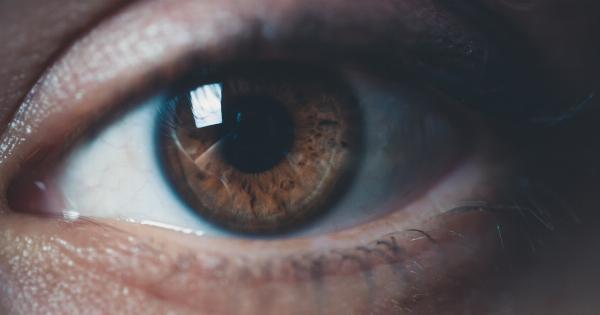Diabetes is a disease in which the body either becomes resistant to insulin or fails to produce enough insulin, which leads to high levels of blood glucose.
While managing high blood glucose levels is important for diabetics, it’s equally important to prevent low blood sugar levels or hypoglycemia. Hypoglycemia is a condition that occurs when blood glucose levels fall below 70 mg/dL, which is dangerous for diabetics as it can cause several adverse complications, including damage to the eyes.
The Relationship between Blood Sugar and Eye Health
Elevated blood glucose levels can have negative effects on the eyes of diabetics. However, it’s also important to maintain balanced blood glucose levels to prevent low blood sugar-related eye complications.
If left untreated, both high or low blood glucose levels can damage the retina and cause long-term vision problems.
Low Blood Sugar and Diabetic Retinopathy
Diabetic retinopathy occurs due to damage to the small blood vessels in the retina. It’s a common complication of diabetes and can lead to blindness if not treated.
While high blood glucose levels are commonly associated with diabetic retinopathy, recurring episodes of hypoglycemia can worsen the condition.
The Link between Hypoglycemia and Diabetic Macular Edema
Diabetic macular edema is another type of retinopathy that occurs due to damage to the capillaries in the retina. In this condition, fluid accumulates in the macula, leading to blurred vision and vision loss over time.
Hypoglycemia can cause a rapid decrease in blood glucose levels that can release several hormones, including epinephrine or adrenaline. These hormone releases can cause fluid accumulation in the macula, further worsening the condition.
The Relationship between Hypoglycemia and Glaucoma
Glaucoma is an eye disease that can cause permanent blindness if left untreated. It occurs due to increased pressure within the eye, which can damage the optic nerve and cause vision loss.
Hypoglycemia triggers the release of several hormones, including Epinephrine, that can elevate the intraocular pressure, leading to losses of peripheral vision. Hypoglycemia can worsen eye damages associated with glaucoma affecting blood flow and subsequently increasing intraocular pressure.
The Impact of Hypoglycemia on the Retina’s Hypoxic Environment
The retina is one of the most critical tissues in the body that requires a high supply of oxygen and nutrients to function correctly. Hypoglycemia can cause hypoxia or reduced oxygen supply, leading to damage of the retina cells.
Prolonged hypoxia can cause tissue damage in the retina and the formation of new blood vessels within the retina, leading to macular edema, macular ischemia, and neovascularization. These complications can further damage the eyes and cause long-term vision loss.
Preventing Hypoglycemia-Related Eye Complications in Diabetes
It’s important for diabetics to maintain healthy blood sugar levels to prevent complications that can cause eye damages.
To prevent hypoglycemia, diabetics should maintain regular eating habits, avoid skipping meals, and take medications regularly as prescribed by a healthcare provider. Diabetics are also advised to avoid over-exercising or strenuous work without adequate food intake and to monitor and adjust their insulin dose according to their blood glucose level.
These measures can help maintain balanced blood glucose levels and prevent hypoglycemia-related eye complications.
Conclusion
Keeping the blood sugar levels maintained is vital for diabetic management and is critical to maintaining our general well-being.
Hypoglycaemia is just one of several complications that can arise from poorly controlled diabetes, and it can lead to substantial eye complications that can cause long-term vision problems. It’s important for diabetics to manage their blood glucose levelsproactively and seek care for the associated complications of high or low glucose levels.
Healthcare providers can guide diabetics on the management of their blood glucose levels and support them in preventing eye-related complications.





















